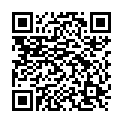|
|
|
| Module code: DFILM-405 |
|
|
2U (2 hours per week) |
|
2 |
| Semester: 4 |
| Mandatory course: yes |
Language of instruction:
English |
Assessment:
Written exam 90 min. (50%) and tests over the course of the semester (50%)
[updated 30.04.2025]
|
DFBBW-444 (P620-0006) Business Administration, Bachelor, ASPO 01.10.2009
, semester 4, mandatory course
DFBBW-444 (P620-0006) Business Administration, Bachelor, ASPO 01.10.2013
, semester 4, mandatory course
DFBTO403 (P620-0523) International Tourism Management, Bachelor, ASPO 01.10.2018
, semester 4, mandatory course
DFITM-405 (P620-0472) International Tourism Management, Bachelor, ASPO 01.10.2020
, semester 4, mandatory course
DFBLG403 (P620-0332) International Logistics Management, Bachelor, ASPO 01.10.2018
, semester 4, mandatory course
DFILM-405 (P620-0419) International Logistics Management, Bachelor, ASPO 01.10.2019
, semester 4, mandatory course
DFILM-405 (P620-0419) International Logistics Management, Bachelor, ASPO 01.10.2022
, semester 4, mandatory course
DFBBW-444 (P620-0006) German-French and International Management, Bachelor, ASPO 01.10.2018
, semester 4, mandatory course
DFIM-404 German-French and International Management, Bachelor, ASPO 01.10.2019
, semester 4, mandatory course
DFBLG403 (P620-0332) Logistics, Bachelor, ASPO 01.10.2009
, semester 4, mandatory course
DFBLG403 (P620-0332) Logistics, Bachelor, ASPO 01.10.2013
, semester 4, mandatory course
|
30 class hours (= 22.5 clock hours) over a 15-week period.
The total student study time is 60 hours (equivalent to 2 ECTS credits).
There are therefore 37.5 hours available for class preparation and follow-up work and exam preparation.
|
Recommended prerequisites (modules):
None.
|
Recommended as prerequisite for:
|
Module coordinator:
Prof. Dr. Thomas Tinnefeld |
Lecturer: Prof. Dr. Thomas Tinnefeld
[updated 01.10.2017]
|
Learning outcomes:
After successfully completing this module, students will: be able to perform at level B1+ of the Common European Framework of Reference, largely due to an English learning environment:
- have acquired basic knowledge on teaching a foreign language in a largely subject-related, communicative approach,
- be able to understand relevant, moderately difficult, business-oriented texts, including those from the Anglo-American press, taking into account individual details,
- be able to understand intermediate, technically relevant, orally presented texts pertaining to different topics,
- be able to understand relevant, moderately difficult, business-oriented texts, including those from the Anglo-American press, taking into account individual details,
- be able to reflect on moderately difficult newspaper and magazine articles in the Anglo-American press, not least from an intercultural perspective,
- be able to reflect on moderately difficult, technically relevant texts presented orally, not least from an intercultural perspective,
- be able to improve and develop their own discussion skills through special support during the course,
- be able to represent their own opinions and points of view in general and argue them in discussions in an appropriate manner,
- be able to use English in oral and written forms of expression in a more or less authentic manner,
- be able to recognize and reflect on cultural differences and peculiarities of economic activity between English-speaking countries,
- have developed a degree of intercultural competence in dealing with Anglo-American issues and situations,
[updated 30.04.2025]
|
Module content:
- Development of an extended tourism-related vocabulary
- Advanced functional grammar with a focus on its use in various
types of texts in tourism management
- More relevant texts from the field of tourism management
- (Inter)culturally interesting topics in the subject area with a focus on the countries
where the target language is spoken
- Didactic newspaper and magazine articles with a technical and/or
(inter)cultural orientation
- Regional content, including topics from daily politics
- Writing skills in (predominantly) scientific language
[updated 30.04.2025]
|
Teaching methods/Media:
- Group discussions
- Partner work
- Group work phases where students tackle specific tasks
- Interactive, multimedia language lab
- Short presentations by the students
[updated 25.11.2020]
|
Recommended or required reading:
- Teaching materials: texts and exercises compiled by the lecturer
- PowerPoint presentations by the lecturer or equivalent visualization forms
- Newspaper and magazine articles with scientific and/or (inter)cultural orientation
- Internet resources
- Didactic video and audio material
[updated 30.04.2025]
|

